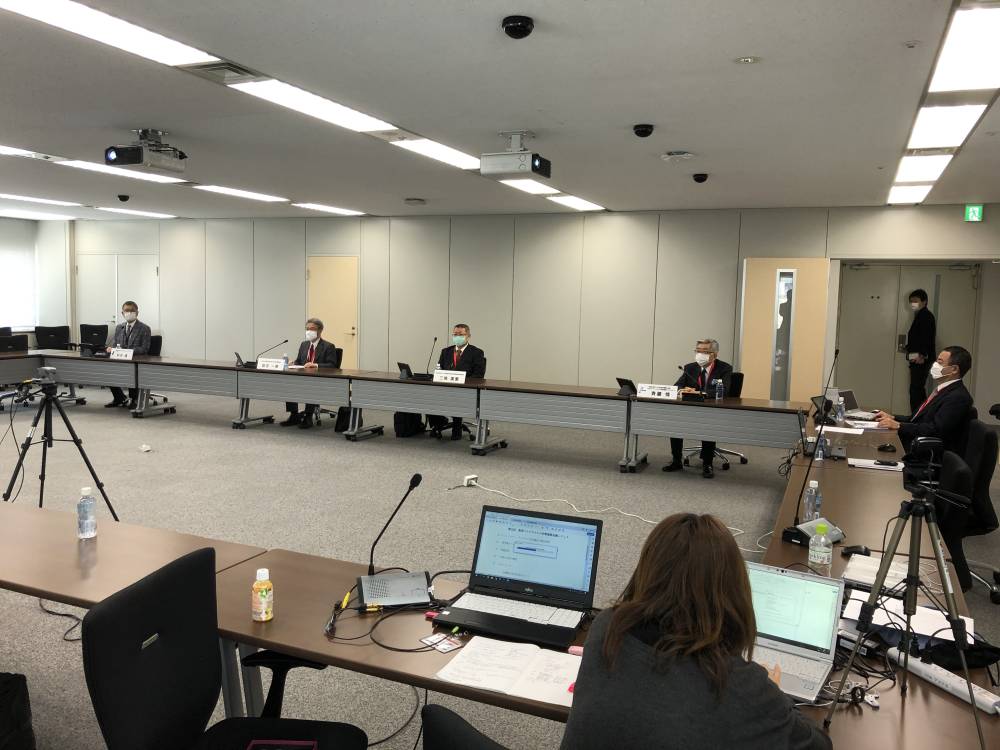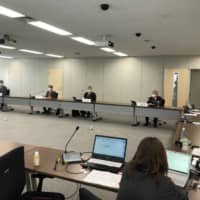In the midst of the COVID-19 pandemic and with athletes in both leagues having been infected, Nippon Professional Baseball and the J. League will start and resume their seasons, respectively, even later than currently scheduled.
The joint task force formed by the two biggest professional sports competitions in Japan held its fifth meeting with its panel of medical experts Friday morning.
The panel advised the two leagues push their seasons back until at least late May, forcing both circuits to scrap their previously scheduled return dates.
Both leagues previously intended to play in late April, with baseball opening its season April 24 and the J. League's third division following suit the next day. The J. League's first and second divisions had been been slated to start on May 2 and 9, respectively.
But both NPB Commissioner Atsushi Saito and J. League Chairman Mitsuru Murai recognized that it will be practically impossible to carry those plans out given the dramatic increase in infections across the country in recent days.
Last week, Hanshin Tigers pitcher Shintaro Fujinami and two of his teammates tested positive for the virus, while the J. League saw its first infections this week in players belonging to three clubs – including Vissel Kobe defender Gotoku Sakai.
Mitsuo Kaku, the leader of the task force's medical panel, stressed that “anyone has a chance to be infected” with the coronavirus “anywhere” in the country, adding that it would be “extremely difficult” for the two pro leagues to start playing in April.
“As people have self-quarantined, I’ve been hoping they would be able to start their seasons sooner than later,” said Kaku, a specially appointed professor at Tohoku Medical and Pharmaceutical University. “But given the circumstances, we had to tell the leagues that it would be extremely difficult to host games in April.”
Aichi Medical University professor Hiroshige Mikamo, another member of the panel, believes the peak of the virus will come “between April and May” and anticipates the situation could be “manageable around late May.”
Task force members discussed the possibility of hosting games behind closed doors or limiting the number of fans at stadiums even if play does resume in late May. But that, too, will be dependent on the situation.
Another issue to be resolved is how both leagues will respond in the event that a player or team official contracts COVID-19 once their seasons resume.
Following the task force meeting, Saito said that “the present state has become more difficult," with Murai agreeing that “the severity of the situation has increased.”
Both Saito and Murai said that their leagues had a “social responsibility" to accept the further postponement in order to avoid spreading the virus both in and outside their teams and organizations.
Murai said that the joint task force had previously been formed to help protect the leagues’ fans, but it now has the added responsibility of protect players and staff as well.
"We’ve heard the advice of our experts. We were aiming to start the J3 on April 25, J2 on May 2 and J1 on May 9, but we’ve wiped that slate clean," Murai told a separate news conference following an executive committee meeting of nearly 200 league and club officials.
"The tone of the experts has changed ... Until now we’ve been talking about how we can resume games and avoid the ‘3 Cs’ (closed spaces, crowded places and close-contact settings) by reducing crowds and changing cheering styles.
"Even if there aren’t many fans (at the stadium), the players still have to travel and will be exposed to risk, and that risk won't be reduced by staggering the restart of each division. But if we wait another month, we might have the option of opening the three leagues closer together."
NPB also reacted quickly. Following his own meeting with representatives of all 12 teams as well as the Central and Pacific Leagues, Saito announced that they had decided not to immediately designate a new date to start its season.
The commissioner added that the circuit hopes to set its new date “around late April or early May," and that further discussions would be held regarding the number of games in the regular season.
"Looking at the schedule, now that the season will start after April 24, It's going to be difficult to have 143 games," Saito said.
Staff writer Dan Orlowitz contributed to this report.




















With your current subscription plan you can comment on stories. However, before writing your first comment, please create a display name in the Profile section of your subscriber account page.